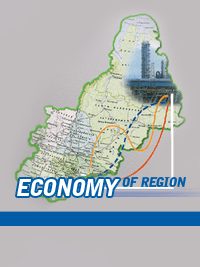I received a mail …
Il giorno 13/set/2014, alle ore 14:30, …
It is a death ,..
Actually I received the mail after arriving in Berlin for a planning meeting of a network on precarity …
I follow the article – thinking that it is a somewhat unusual death notice, though I know the person who sent it. The article is speaking about the library closures going on in the UK, it could and should speak bout the library closures in the global north-west …
… and the moral …?
Never allow dead people making politics or policies …:-(
I rely by adding another point – referring to something I read earlier in another mail:
Libraries ,,doors to knowledge and haven of peace ,,,what is there (in the libraries) not to like. For me ? To make a choice ,,,hate to do as I am greedy about certain things ( eg : books) Having to return them ,,
I personally would have a huge library, part of it destroyed by my parents: you could name it a “private book burning” though in that case they intentionally drowned them. Part of it actually drowned in my Irish estate – d e to frost damaging some pipes; others still existing somewhere I could not store them anymore. Just a side remark on the latter: I offered a huge store to the university library in Cork – for free: interesting unpublished stuff s well, from EU (or EC) times: documents, project documentation, project analysis …. They declined: No space, but not least “it is not in English” (just in alien languages as Dutch, French, German, Italian, Russian, Swedish).
Today the same university library in Cork, as many others, stores the books somewhere, one has to order them and they will be available next day, perhaps even the afternoon of the same day.
Sure, there is a problem of space – but there is a problem of building cages, prisons … I have been very privileged at times: One of the universities where I studied provided all year round access (I think it had been closed just one day, they called Christmas). Overnight and holiday limitations applied: only one entrance open. It had been in a way just one huuuuuuuuuuuuuuuuuuge room, probably one entire floor of the University in Bielefeld. All departments; sure “we” have had “our” area: economics, law, sociology; but in some way we shared the “room” with physics, quantum mechanics, nuclear biology, impressionism, renaissance architecture, philosophy of Mencius – things we sometimes (many times) did not know how to spell, we did not know that they existed. But as much as there had been in the 1840s a spectre hunting Europe, there had been the spectre of universal knowledge hunting many of us in such a library. I encountered this spectre also when I worked (did I ever work? Didn’t I only study throughout my life?), so many books I didn’t understand, but being there and begging for respect, though I should have been the begging one: asking humbly to be part of this affluence of knowledge …
… there we come to the tricky point, the im-materialisation of the spectre, emerging as spirit.
Marx said once (something as) The idea turns into a material force if it gains the support of the masses (bad memory, bad translation – I remember only the German original:
Die Idee wird zur materiellen Gewalt wenn sie die Massen ergreift
Another, very special experience when I studied (or worked …, or played, or worked on the project of changing the world?) in Amsterdam. I remember once finding myself in part of the law library, asking one of the librarians a silly question. Actually, silly had been that I asked as he wanted to see my library card which I handed over. He looked at it and said
Hm…, actually you are not allowed to be in this area …. – but …, well for these documents you have to go to the third shelve …, actually I will come with you and give you the box with the commented drafts of the legislation ….
On another occasion I visited the library for anthropology, looking for a special book. I walked along the Prinzengracht (if I remember correctly, may be it had been the Herrengracht) and looked for house number (lets say) 378. Walked along, saw house number 374, 376, 380, 382 — strange, walked back, and the house number 378 had been a house without number, I entered: I saw “glimpses of a library”: a sign with opening hours, the name … . “Glimpses” because it had been just one of the beautiful “private houses” now being used as library. And the library had been only really coming to the fore after I left the corridor – indoors one could walk into house 376 – just the ordinary rooms but full of books. Sure, systematic, but at the same time due to the architecture not: one section ended …, and had been continued in another room, perhaps not the next because that had been used for another subject area.
In such places you CAN CHOOSE; and nothing has to be returned because it cannot be taken out – all remains OURS: written by us, inherited by us, read by us, carried on by us.
I won’t tell you about my stays in the library for theology, for philosophy (sitting under a beautiful “Rembrandt-like “ paining, a “reading cushion” and on it the second addition of Spinoza, in Latin, in front of me (and admittedly the Latin language added to the pleasure, though caused as ell some pain; and I will not expand on being more or less the only reader for several weeks in the Rijksmuseum in Amsterdam: arts …. history, techniques, epochs, great artists, exhibitions … (well, I could have gone to look at van Rijns “Night watch” as break – but going there before, being on my own just with security, had been more fun…) – sitting there in the reading room: computer, fountain pen, book from the library, note book … I remember a gentleman with two kids walking along (it is one of these “show libraries”, but usually people watched from the balcony). The guy, standing with the kids next to me, pointing at me, I could not hear, don’t know if he really said
… You see, this is what they did and how lived in those old times ….
I still buy books, and I get your point
what is there (in libraries) not to like – For me ? To make a choice .. hate to do as I am greedy about certain things ( eg : books). Having to return them …
But try to get my point: I do not know if I really want to buy more books, want to own them, instead of sitting in a good library, reading, browsing, possibly meeting people, talking with them about what they read, what I read, what we read.
It is a privilege – and it is THIS privilege that makes me coming back to Frances: his camminare insieme.
In a completely different context a Hungarian friend of mine wrote
But it is a big question whether spirituality (and genuine morality) ought to have a basis in faith (or religion).
And she did not mean spirituality in the strict sense, but something of empathy, solidarity, justice …
Her answer simply
I don’t think so
And my answer is the same. I replied to her
I think that being only based in this, it will fail – there must be the material force …
And one of the material forces is the provision of common spaces, common ways on which we can walk together. The church, and other orders, provide that; however, “the public” – after undermining its own basis – cannot do so anymore, lost its own ground. – Slowly but surely it pushed people out of the public realm, calling it enlightenment, but actually meaning reducing them on instruments of instrumental reason, torsos calculating utilities …
As I wrote earlier:
Sure, there is a problem of space – but there is a problem of building cages, prisons …
Books, being imprisoned in storerooms warehouses, libraries … closed because of lack of money … – the revenge lurking around the corner: prisons that have to accommodate those people who could not access education, who had been excluded from society, who lived in a society that actually did not exist anymore, that had been reduced by liberals, by the right. Reduced by the liberals? Well, that is exactly it when what Thatcher did when programmatically stating:
There is now such thing as society.
I guess analytically she had been right; but she did not mean it that way, she meant it as program ….
Berlin, I walk to the meeting point …, passing memories, memorials.
Walking along the Spree where the life of Rosa Luxemburg and Karl Liebknecht found its end, a memorial plaque saying
The defiance of life and the brutality against human beings show people’s ability to inhumanness. It can and should not be a means to conflict resolution of any kind.[1]
Passing presence and future ….
Paul Farmer, a medical anthropologist stating:
Their sickness is a result of structural violence: neither culture nor pure individual will is at fault; rather, historically given (and often economically driven) processes and forces conspire to constrain individual agency. Structural violence is visited upon all those whose social status denies them access to the fruits of scientific and social progress.
Surely all this also being part of those things that have to be discussed when we talk about war, standing up against it
[1] Original
Die Missachtung des Lebens und die Brutalität gegen den Menschen lassen die Fähigkeit der Menschen zur Unmenschlichkeit erkennen. Sie kann und darf kein Mittel irgendeiner Konfliktlösung sein und bleiben.









